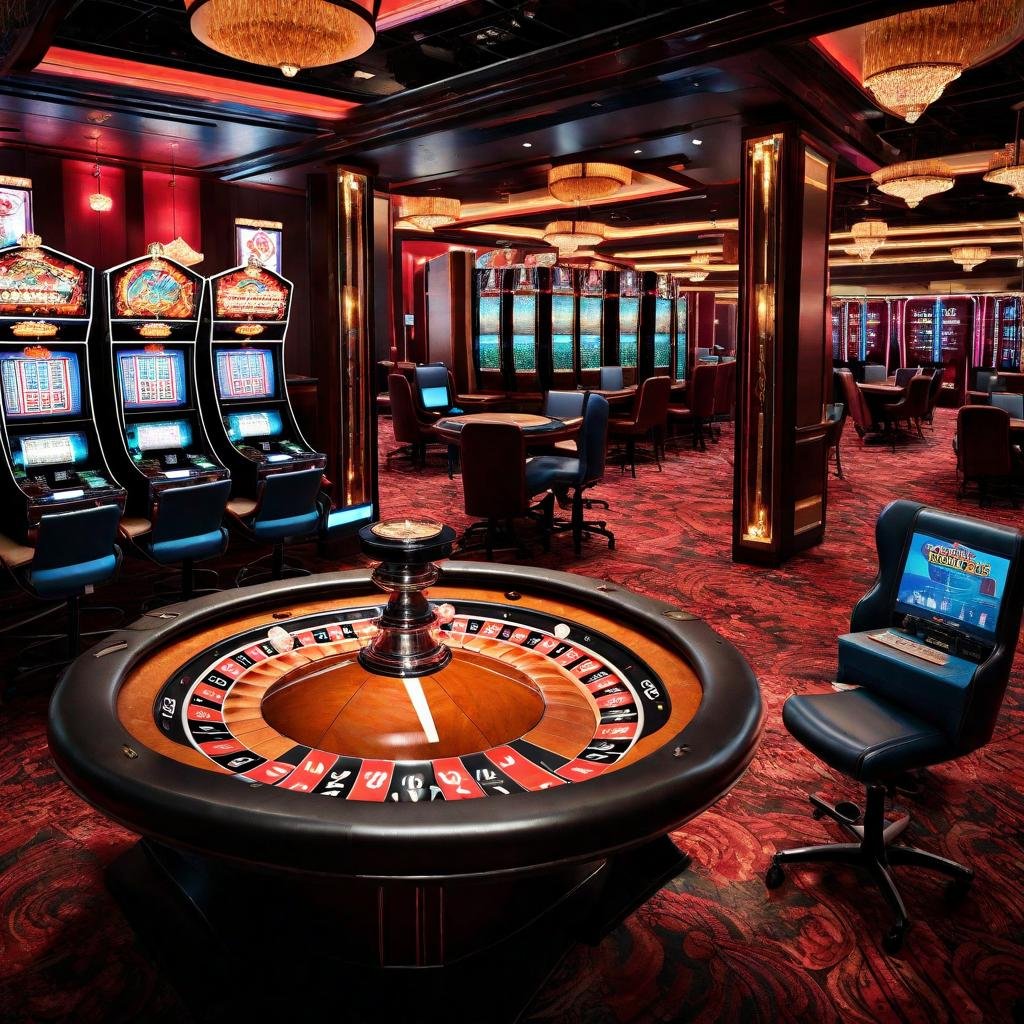
Casino experiences have enthralled players throughout history, transforming from simple pastimes to intricate adventures that integrate fortune, skill, and entertainment. From the ancient roots of gambling in civilizations such as ancient Mesopotamia and Rome to the dazzling corridors of contemporary casinos, the history of these games reveals much about the human experience and our relationship with luck. As cultures have merged and technological advancements have occurred, casino games have transformed, illustrating shifts in society and developments in gameplay.
The initial iterations of gambling likely included elementary dice-based games and wagering on the results of sporting events. Over time, these early games grew into more complex games like card games, the game of roulette, and the variety of one-armed bandits that line the premises of casinos today. Each period brought its unique rules, aesthetics, and cultural importance. At present, casino games persist in evolving with the rise of online platforms, enabling players from various parts of the world to participate in a collective experience, further merging the traditional with the digital age.
Initial Origins of Gambling Games
Gaming games have roots that extend back to ancient civilizations, where wagering was profoundly entrenched in cultural traditions and social rituals. The initial known instances of betting developed in Mesopotamia around 3000 BC, including primitive dice games made from bone bones. https://1xbet.international/ These primitive activities laid the basis for more advanced gambling games, demonstrating humans’ innate desire to pursue fortune and amusement through luck.
As societies progressed, so did their betting interests. In ancient China, around 2300 BC, tiles were unearthed that resembled primitive rudimentary versions of a lottery activity. More organized forms of betting developed in the ancient Roman Empire, where games of luck were a popular recreation, often taking place in community gatherings. The ancient Romans developed different betting games, which entailed dice and board activities, highlighting the widespread nature of betting across various social classes.
With the passage of time, these primitive activities influenced the development of modern gambling games. In the Middle Ages, playing card activities grew prevalent in European culture, paving the way for the professional gaming establishments we know today. The transition from informal gambling to organized gambling in taverns and private houses marked a major shift in how people interacted with games of chance, leading to the eventual establishment of casinos as dedicated places for gambling.
The Emergence of Contemporary Gambling Industry
The late 20th century marked a significant change in the world of casino games, driven by tech innovations and shifts in societal views towards wagering. The introduction of personal computers and the World Wide Web transformed the way players engaged with their preferred casino games. Virtual casinos emerged, allowing players to enjoy timeless casino classics like poker and 21 from the comfort of their homes. This new online environment not only broadened access to casino games but also attracted a newer crowd who found the convenience and diversity tempting.
As digital gambling gained momentum, so did developments in casino tech. The advancement of high-quality software and visual elements transformed classic casino games into immersive experiences. Players could now connect with realistic dealers through live streaming, bringing the atmosphere of physical casinos directly into their houses. This fusion of in-person play with online platforms created a novel combination that boosted the social aspect of playing, making it possible for people to engage and compete with others around the globe.
Additionally, the growth of mobile gaming dramatically changed the casino landscape. With the ubiquitous use of mobile phones and touch devices, gamblers can enjoy their beloved gaming options anywhere, at any time. Mobile apps offer a vast array of games tailored for touchscreens, catering to the dynamic lifestyle of modern users. This easy access has produced growing engagement in casino games, driving the rapid expansion of the gaming industry. As a result, the prospects of the gaming industry continues to progress, responding to technological advancements and shifting consumer preferences.
The Impact of Technology on Casino Games
The evolution of technology has greatly changed casino games, improving the overall gaming experience for gamblers globally. With the introduction of the internet, online casinos were created, allowing players to play their preferred games from the safety of their own homes. This change not only made casino games more available but also expanded the variety of games available, as online platforms could offer many different versions of traditional games without the physical constraints of brick-and-mortar establishments.
Mobile technology further transformed the casino gaming landscape. With the proliferation, players now have the ability to engage in casino games anytime and anywhere. This mobility has resulted in the creation of dedicated mobile applications and optimized websites that offer smooth gaming experiences. Additionally, advancements such as live dealer games have delivered the authentic atmosphere of a casino into players’ homes, bridging the gap between physical and online gaming.
Furthermore, advancements in AI and virtual reality are paving the way for the next generation of casino games. AI improves game design and player interaction, creating tailored experiences based on user behavior and preferences. Meanwhile, virtual reality provides immersive environments where players can interact in a simulated casino setting, making the gaming experience more exciting and lifelike. As technology continues to evolve, the future of casino games seems bright, filled with endless possibilities for innovation and entertainment.
